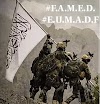Arab Center for Research and Policy Studies publishes the preliminary findings of the Arab Opinion Index report
The Arab Center for Research and Policy
Studies (ACRPS) recently published the Arab Opinion Index report for
2011. The Arab Opinion Index project is currently the largest of its
kind. It covers 12 countries, representing 85 percent of the population
of the Arab world. The Index compiles the findings of 16,173
face-to-face interviews with subjects who were drawn from a random,
representative sampling of the populations of their countries of origin.
An estimated 35,000 human work-hours were spent completing the surveys
which will contribute to the final, detailed statistical report.
The questionnaire was prepared in 2010
and the survey was conducted in the first half of 2011. Given the
changes then unfolding in Arab countries, the questionnaire was amended
to include questions regarding both the Egyptian and Tunisian
revolutions*; survey respondents in Yemen were further questioned about
their views on the revolution in that country.
The ACRPS has made the preliminary
findings of this large-scale survey available to researchers on its
website. These findings, included within a 90-page document, include
some of the highlights of the findings and other basic information
related to this exercise. A detailed book with the results is planned
for publication later this year, in addition to another volume that
analyzes the findings with the help of Arab university professors,
public opinion specialists, and other experts.
On a related note, the ACRPS will soon
begin preparations for a further survey of public opinion in 2012 and
plans to release the results at the end of this year or the beginning of
2013.
Some of the more important highlights of the survey that are included in the preliminary report are:
-
Answers show that a clear majority of Arabs support a democratic form of government, believing in the importance of a transfer of power.
-
Most respondents describe themselves as religious, while rejecting clerical influence in politics.
-
71 percent of respondents expressed faith in their countries’ armies; 47 percent trust their governments (the executive arms of), and 36 percent showed trust in their countries’ legislative bodies before the revolutions.
-
83 percent of respondents say that corruption is widespread in their countries.
-
Only 19 percent of respondents believe that their countries’ legal systems treat all citizens equitably.
-
73 percent of respondents believe that Israel and the US are the two countries presenting the largest threat to the security of the Arab world, with 51 percent believing that Israel is the most threatening, 22 percent believe the US is the most threatening, and 5 percent reporting a belief that Iran is the single country most threatening to the security of their countries. The results on this question vary from one Arab country to another.
-
84 percent believe the Palestinian cause to be a cause for all Arabs, and not solely a Palestinian issue.
-
67 percent of respondents believe that present levels of intra-Arab cooperation are not satisfactory.
-
Roughly three-quarters support lifting travel and trade restrictions between Arab countries, the establishment of joint Arab military forces, and a unified monetary system. This highlights the similar belief, uncovered by this survey and shared by a clear majority of the respondents, which holds that citizens of all Arab states belong to a unitary Arab nation.
-
Most respondents supported the Egyptian and the Tunisian revolutions.
-
Most respondents attributed the revolutions to corruption, dictatorship and the lack of justice and equality.
-
84 percent of respondents are opposed to their countries’ diplomatic recognition of Israel, with only 21 percent of respondents expressing support for the peace agreements signed with the Israelis by Jordan, Egypt, and Palestine.
-
55 percent support having the Middle East declared a nuclear-weapons-free zone, compared to 29 percent who would oppose such a move. The majority of the 55 percent believe that Israel’s possession of nuclear weapons justifies possession of such weapons by other countries in the region.
- To view the Executive Summary click here






0 Comments